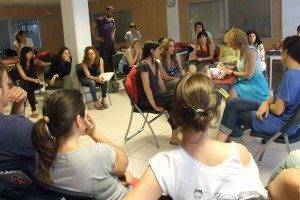New study links low DHA levels to suicide risk among U.S. military personnel
Researchers compared levels of omega-3 fatty acids of 800 individuals who committed suicide with those of 800 randomly selected controls — military service members who were matched with the suicide cases by age, sex, and rank. They found that all the service members had low omega-3 levels, and that suicide risk was greatest among individuals with the lowest levels of the major omega-3 fatty acid concentrated in the brain.
This adds to the large body of research that points to a fundamental role for DHA and other omega-3 fatty acids in protecting against mental health problems and suicide risks. Omega-3 fatty acids are recommended as an adjunctive therapy for mood disorders, now further research is needed to establish a definitive role for their use in the treatment of depression.
Optimal nutrition is important for all of us – as Naturopaths, Matthew and I can advise on good nutrition and a healthy diet, good sources of dietary Omega 3’s and supplements for you and your family.
J Clin Psychiatry. 2011 Aug 23: Suicide deaths of active-duty US military and omega-3 fatty-acid status: a case-control comparison.
